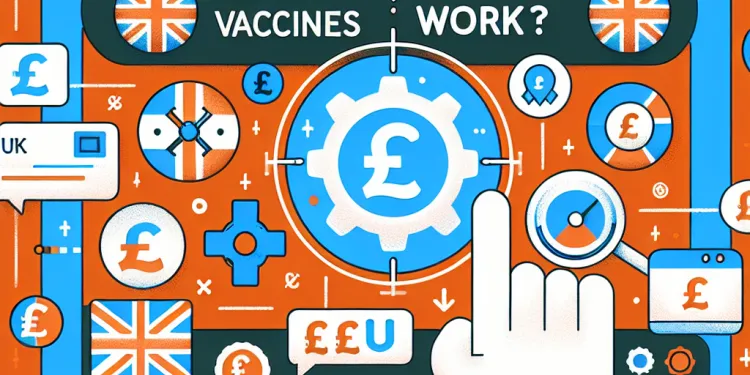
Find A Professional
More Items From Ergsy search
-
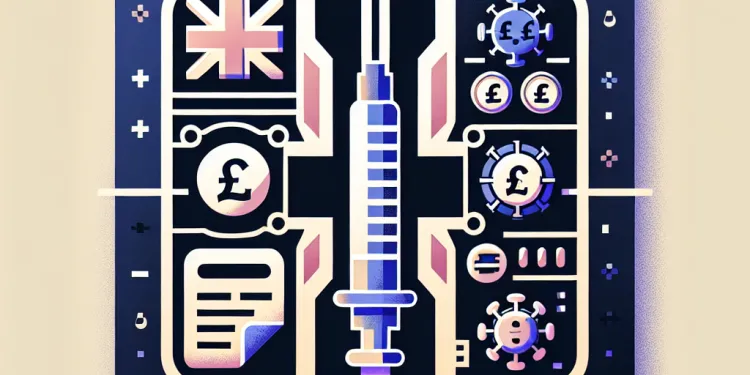
What are the different types of vaccines?
Relevance: 100%
-

What steps can improve vaccine effectiveness?
Relevance: 91%
-
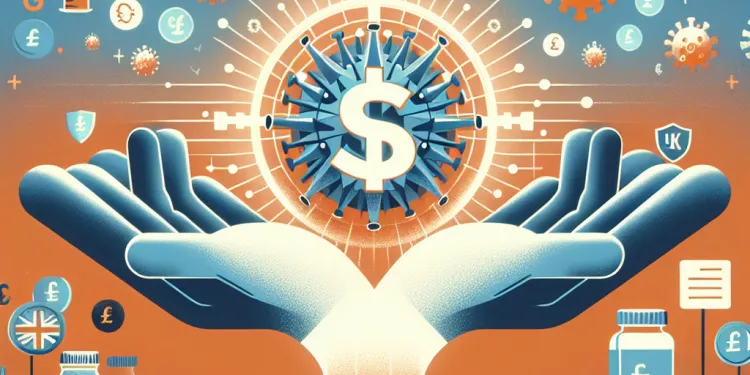
Can everyone receive vaccines?
Relevance: 91%
-

Are vaccines safe?
Relevance: 85%
-

What is a subunit vaccine?
Relevance: 85%
-
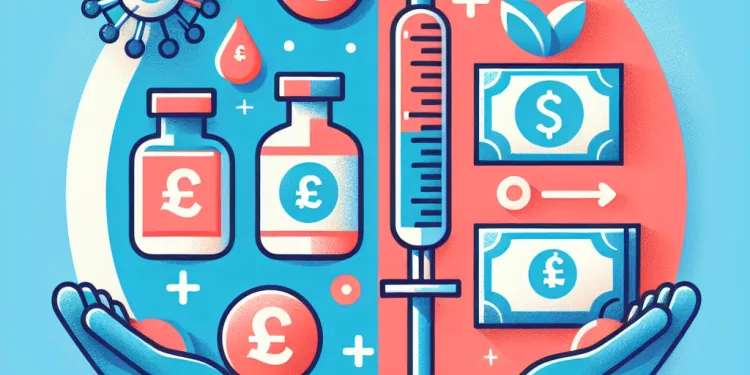
How effective is the flu vaccine?
Relevance: 84%
-
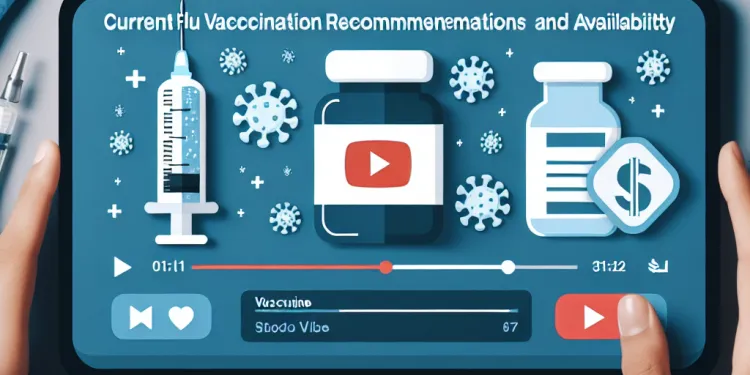
Current Flu Vaccination Recommendations and Availability
Relevance: 83%
-
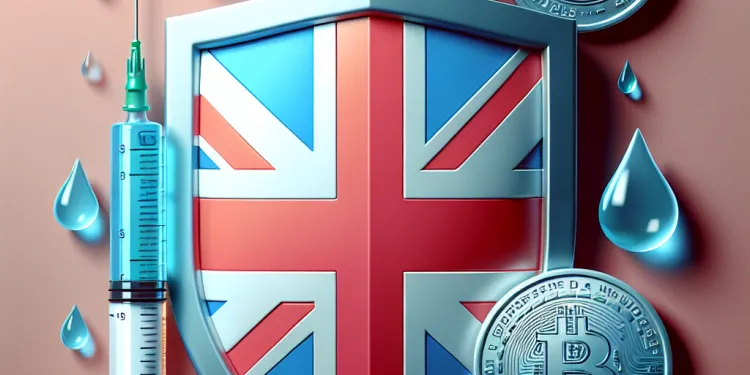
Can vaccines cause the diseases they protect against?
Relevance: 81%
-
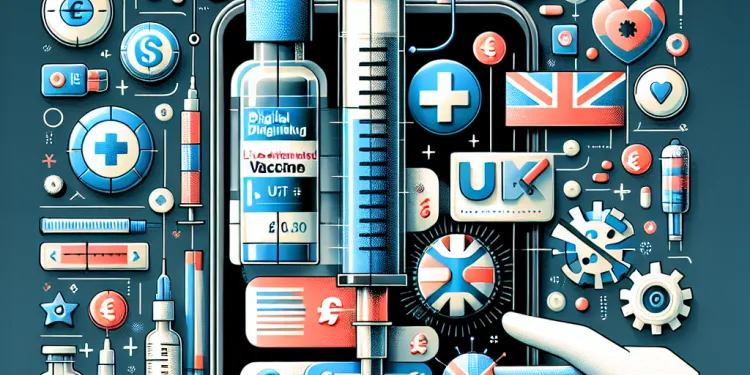
What is a live-attenuated vaccine?
Relevance: 79%
-
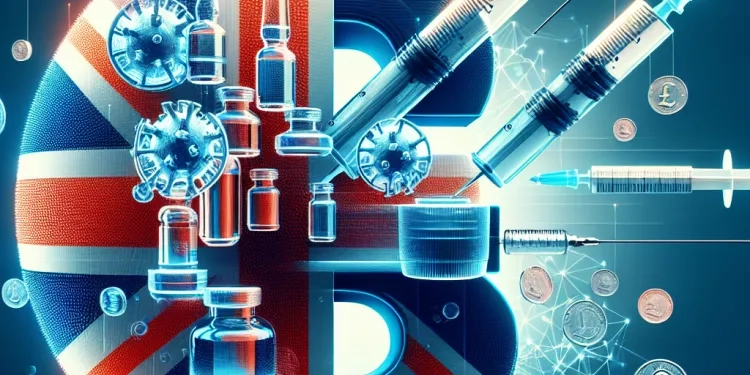
What are vaccines and how do they work?
Relevance: 78%
-
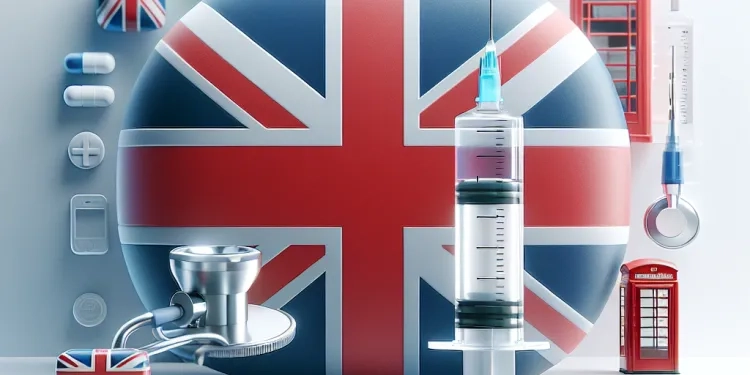
What if I'm not eligible for a free flu vaccine, can I still get vaccinated?
Relevance: 77%
-
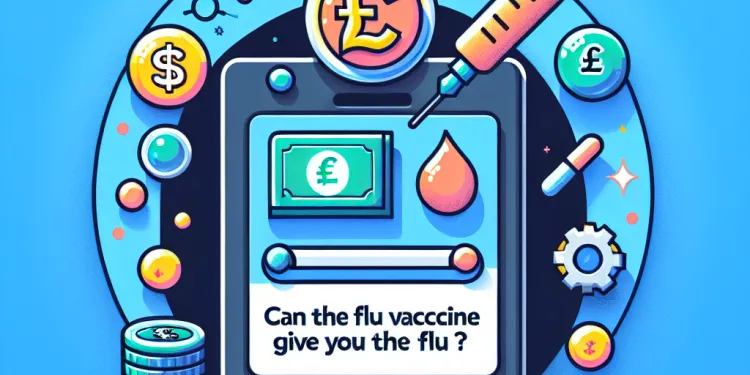
Can the flu vaccine give me the flu?
Relevance: 76%
-
Does the flu vaccine protect against COVID-19?
Relevance: 76%
-

Children's Vaccination Schedule
Relevance: 75%
-

Is the flu vaccine free for everyone in the UK?
Relevance: 75%
-

How does vaccination affect measles rates?
Relevance: 74%
-

When is the best time to get the flu vaccine?
Relevance: 72%
-
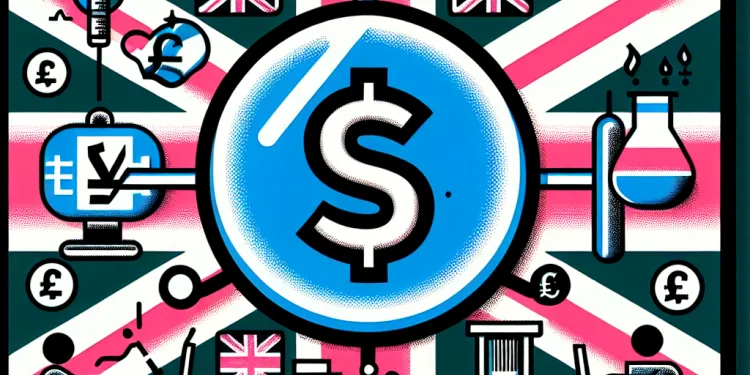
Why do vaccinated people sometimes still get sick?
Relevance: 71%
-
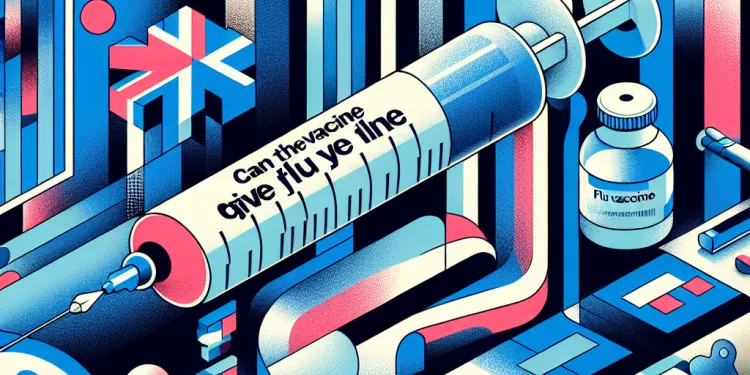
Can the flu vaccine give you the flu?
Relevance: 71%
-
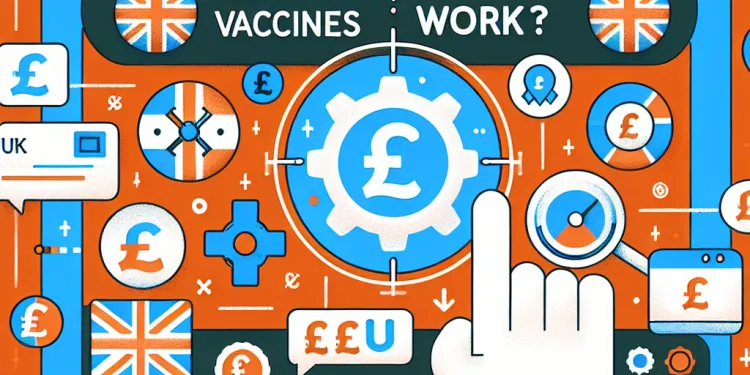
How do vaccines work?
Relevance: 70%
-

Surge in HPV Vaccination Rates Among Young Women in the UK
Relevance: 70%
-
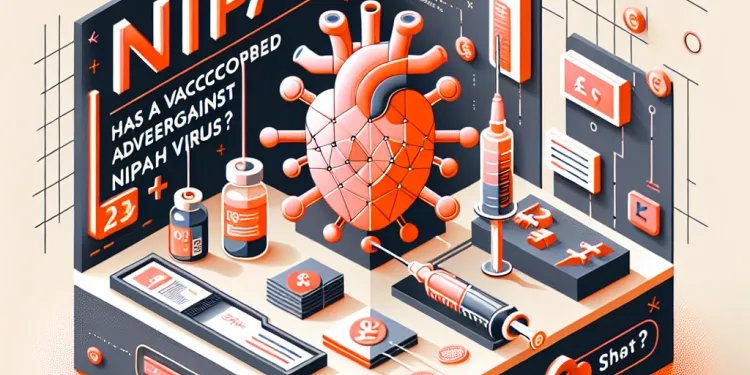
Has a vaccine been developed against Nipah Virus?
Relevance: 70%
-
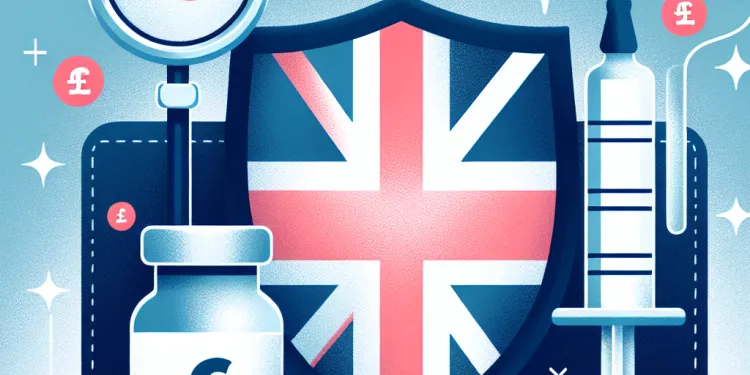
Why are vaccines important?
Relevance: 70%
-
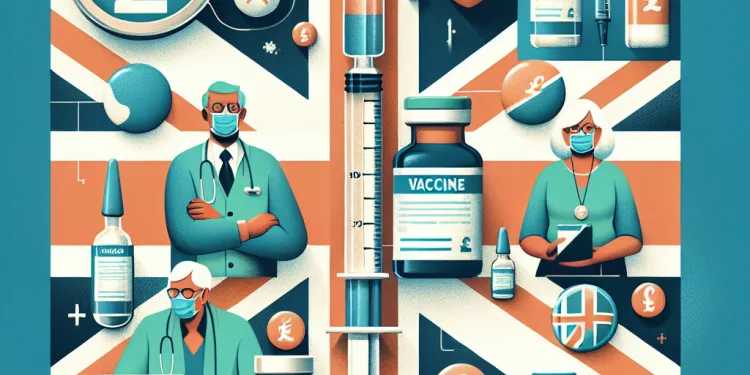
Why do some vaccines require multiple doses?
Relevance: 69%
-
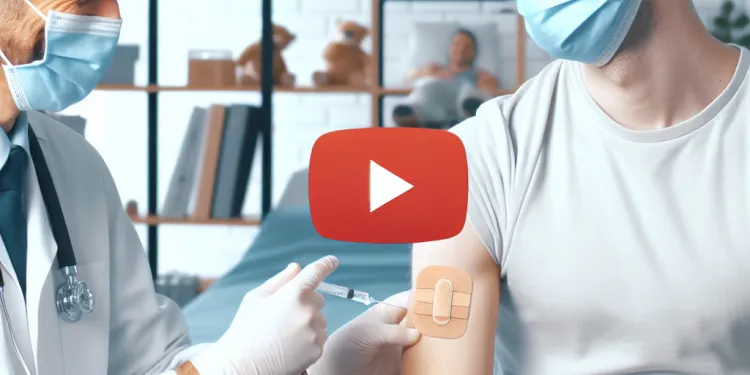
Can adults receive the MMR vaccine?
Relevance: 69%
-

Can pregnant women get the flu vaccine?
Relevance: 69%
-
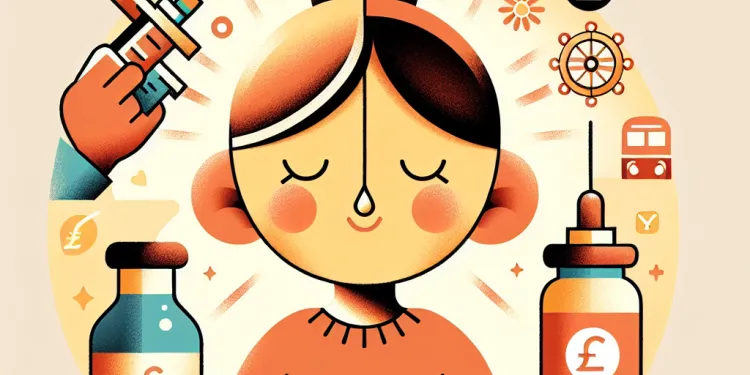
Can children receive the flu vaccine as a nasal spray?
Relevance: 68%
-
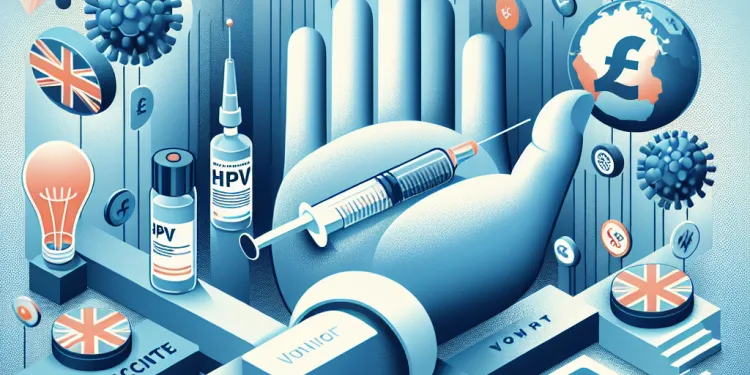
Who should get the HPV vaccine?
Relevance: 67%
-

How long does it take for the flu vaccine to become effective?
Relevance: 67%
-

Do I need any vaccine injections for EU countries?
Relevance: 66%
-

What if I have an egg allergy, can I still get the flu vaccine?
Relevance: 66%
-
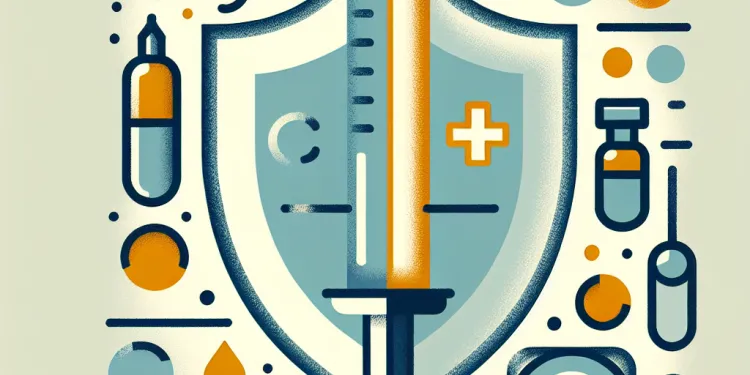
Is there a vaccine for the Zika virus?
Relevance: 66%
-
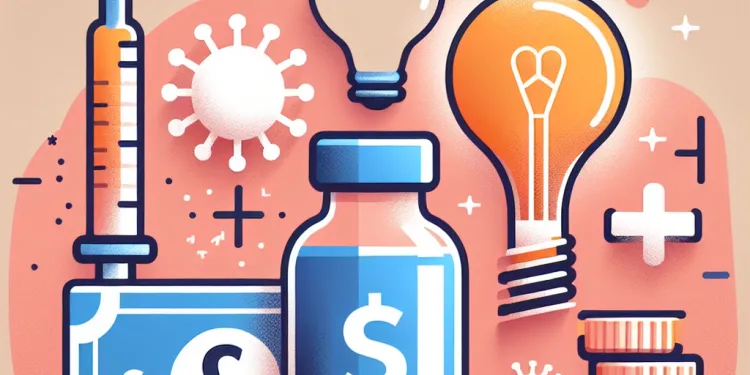
Are vaccines linked to autism?
Relevance: 65%
-
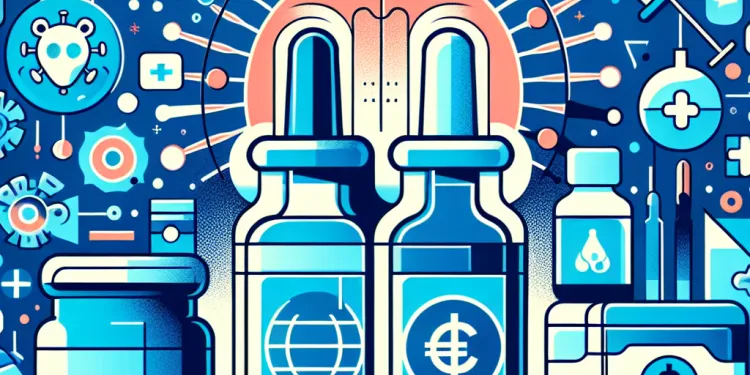
How effective is the MMR vaccine?
Relevance: 65%
-
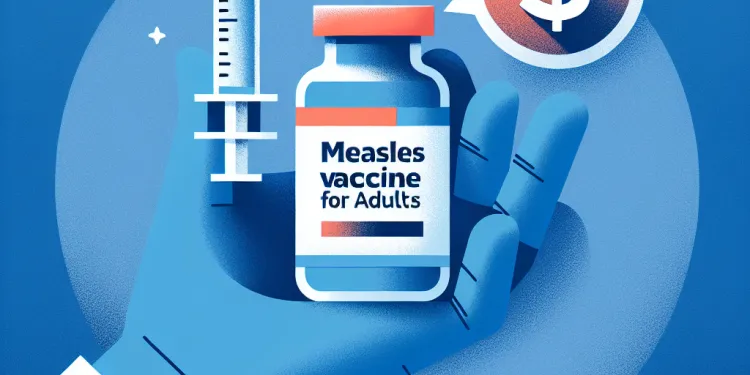
Can the measles vaccine be given to adults?
Relevance: 64%
-
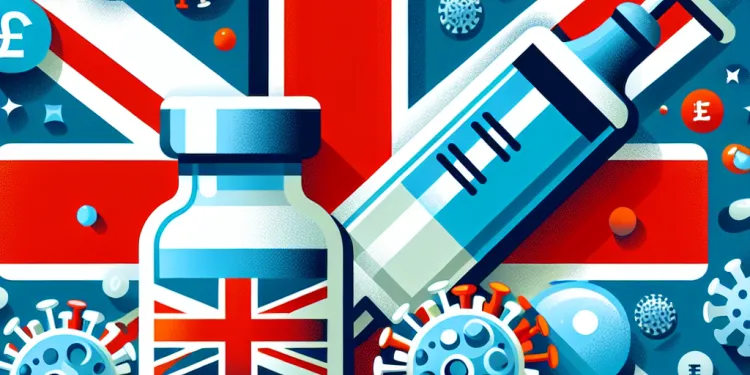
Do vaccines work against new COVID-19 variants?
Relevance: 64%
-

How do I book an appointment for the flu vaccine?
Relevance: 63%
-

What is a vaccine?
Relevance: 63%
-
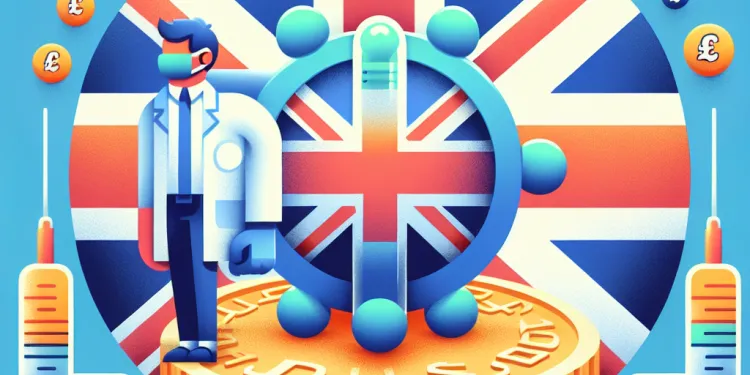
Who should get the flu vaccine in the UK?
Relevance: 61%
-
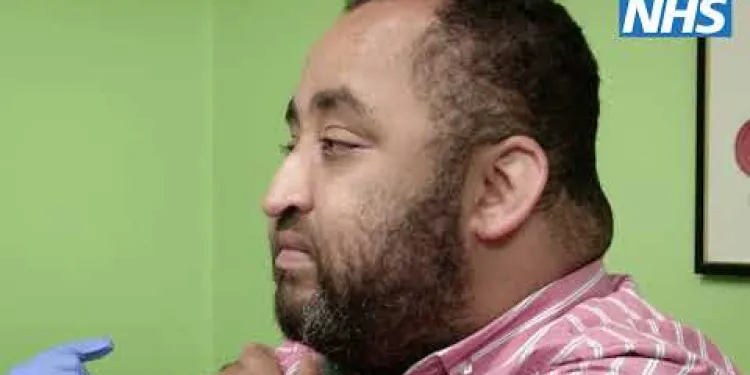
Flu vaccinations for people with a learning disability
Relevance: 59%
Introduction to Vaccines
Vaccines are a crucial tool in modern medicine, designed to protect individuals and communities from infectious diseases. They work by preparing the body’s immune system to recognize and combat harmful pathogens, such as bacteria and viruses. In the UK, vaccinations are a key part of public health strategy, contributing to the control and eradication of illnesses.
How Vaccines Work
Vaccines function by mimicking the disease-causing pathogens, prompting the immune system to respond. This process involves introducing a harmless component of the pathogen, like a protein or a weakened form of the virus, into the body. The immune system, recognising this as foreign, mounts a defence by producing antibodies. Importantly, this exposure does not cause the disease itself but equips the body with the tools to combat future infections.
Types of Vaccines
There are several types of vaccines, each designed based on how they intend to provoke an immune response. Live-attenuated vaccines use a weakened form of the virus, an example being the MMR vaccine. Inactivated vaccines contain pathogens that have been killed; these include the polio vaccine. Subunit, recombinant, and conjugate vaccines use pieces of the pathogen, such as proteins or sugars. The new generation of vaccines, like mRNA vaccines (Pfizer-BioNTech and Moderna for COVID-19), work by delivering genetic instructions to produce a protein that triggers immunity.
Immune System Response
Once vaccinated, if the body encounters the actual pathogen in the future, the immune system can respond more swiftly and effectively. Memory cells, part of the immune system, remember the pathogen and stimulate the rapid production of antibodies to neutralise it. This pre-emptive readiness is what makes vaccines so powerful, reducing the severity of disease and often preventing infection altogether.
Herd Immunity
Vaccination not only protects the individual but also contributes to community-wide immunity, known as herd immunity. When a significant portion of the population is immunised, it becomes difficult for the disease to spread, protecting unvaccinated individuals, such as those who are medically unable to receive vaccines. Herd immunity is pivotal in controlling outbreaks and eradicating diseases over time.
Importance of Vaccination
Routine vaccination has led to the dramatic reduction of many life-threatening diseases within the UK. For instance, diseases like smallpox have been eradicated through widespread immunisation programs. Vaccination not only saves lives but also reduces healthcare costs and the burden on health systems. It is essential for continued public health and safety, especially in preventing the resurgence of previously controlled diseases.
Conclusion
In summary, vaccines are a vital component of disease prevention and control. By safely stimulating the immune system, they prepare the body to fight off future infections, contributing to individual and public health. In the UK, vaccines remain a cornerstone of medical practice, safeguarding the population and paving the way for a healthier future.
Introduction to Vaccines
Vaccines are important for keeping us healthy. They help protect us from getting sick by teaching our bodies to fight off bad germs like bacteria and viruses. In the UK, vaccines help keep everyone safe from diseases.
How Vaccines Work
Vaccines help by being like a pretend version of the germs that make us sick. They show our body what the germs look like, so our body learns how to fight them. Vaccines use safe parts of the germs, like a tiny piece of a virus, to teach our bodies. This means we don't get sick from the vaccine; instead, we get ready to fight the real germs if they ever try to make us sick.
Types of Vaccines
There are different kinds of vaccines. Some use a weaker version of germs, like the MMR vaccine. Others use germs that are no longer alive, like the polio vaccine. Some vaccines use parts of germs, like pieces of protein, to help our body learn to fight. New types of vaccines, like the ones for COVID-19, use special instructions to help our body learn how to protect itself.
Immune System Response
After we get a vaccine, our body is ready to fight if we meet the real germs. Our body remembers the germs and can fight them off quickly, so we don’t get sick. This helps keep us strong and healthy.
Herd Immunity
When a lot of people get vaccines, it helps the whole community. This is called herd immunity. It makes it hard for diseases to spread, so even people who can't get vaccines are safer. Herd immunity helps stop outbreaks and can make diseases go away.
Importance of Vaccination
Getting vaccines has made many dangerous diseases rare in the UK. For example, smallpox has disappeared because of vaccines. Vaccines save lives and help keep healthcare costs down. They are important for keeping everyone safe and healthy.
Conclusion
In short, vaccines are very important for stopping diseases. They help our bodies get ready to fight infections and keep us and others healthy. In the UK, vaccines are a key part of keeping everyone safe and healthy for the future.
Frequently Asked Questions
What is a vaccine?
A vaccine is a biological preparation that provides active immunity to a particular infectious disease.
How do vaccines work?
Vaccines work by stimulating the immune system to recognize and fight pathogens, such as viruses or bacteria.
What are the types of vaccines?
There are several types of vaccines including inactivated, live-attenuated, subunit, conjugate, and mRNA vaccines.
What is an inactivated vaccine?
An inactivated vaccine contains a virus or bacteria that has been killed so it can't cause disease.
What is a live-attenuated vaccine?
A live-attenuated vaccine uses a weakened form of the germ that causes a disease.
What is a subunit vaccine?
A subunit vaccine includes only parts of the virus or bacteria, or subunits.
How does the immune system respond to a vaccine?
The immune system produces antibodies and prepares white blood cells to remember how to fight the illness in the future.
What is herd immunity?
Herd immunity occurs when a large part of the population is immune to a disease, indirectly protecting those who are not.
Do vaccines contain the live virus?
Not all vaccines contain live viruses; inactivated and certain other types do not contain live germs.
Can vaccines prevent diseases completely?
Vaccines significantly reduce the risk of disease, but their effectiveness can vary.
Are vaccines safe?
Yes, vaccines undergo rigorous testing and monitoring to ensure they are safe and effective.
Why are vaccines important for public health?
Vaccines prevent outbreaks, reduce disease burden, and can lead to the eradication of diseases.
What is an mRNA vaccine?
An mRNA vaccine uses a piece of genetic code from a virus to provoke an immune response.
How long do vaccine side effects last?
Vaccine side effects are typically mild and last only a few days.
What is a booster shot?
A booster shot is an additional vaccine dose given after the initial series to boost immunity.
Can you get a disease from the vaccine?
No, vaccines do not cause the diseases they are designed to prevent.
Why do some people need more doses than others?
Some vaccines require multiple doses to provide complete and lasting immunity.
Do vaccines contain preservatives?
Some vaccines contain preservatives to prevent contamination, but not all do.
Can vaccines protect against new virus variants?
Vaccines can provide protection, though the level of effectiveness may vary against different variants.
What should I do if I have concerns about vaccines?
Consulting healthcare professionals is recommended for questions and concerns about vaccines.
What is a vaccine?
A vaccine is like a shield for your body. It helps you fight germs so you don't get sick. When you get a vaccine, it teaches your body how to stay strong and healthy.
Tools to help:
- Ask a grown-up to explain it to you.
- Watch a simple video about vaccines.
A vaccine is a special medicine. It helps your body fight off bad germs that make you sick.
How do vaccines work?
Vaccines help our bodies fight germs.
When you get a vaccine, it teaches your body how to stay strong.
This way, if germs try to make you sick later, your body knows how to stop them.
To learn more, you can use pictures or videos that show how vaccines work.
Vaccines help our bodies fight germs like viruses or bacteria. They teach our immune system to see these germs and get rid of them.
What kinds of vaccines are there?
There are different kinds of vaccines. Some types are:
- Inactivated vaccines
- Live-attenuated vaccines
- Subunit vaccines
- Conjugate vaccines
- mRNA vaccines
It can help to use tools like pictures or videos to understand vaccines better. You can also ask an adult or a teacher to explain them to you.
What is an inactivated vaccine?
An inactivated vaccine is a type of shot that helps protect you from getting sick. It uses a virus or germ that is dead. This means it cannot make you sick.
This shot teaches your body how to fight the virus or germ if it ever gets into your body. Your body gets ready to keep you safe.
Some tips to understand better:
- Ask someone you trust to read it with you.
- Use pictures to help explain how the vaccine works.
- Ask questions if you do not understand. It's okay to ask for help!
An inactivated vaccine has germs that are dead. These germs can't make you sick.
What is a live-attenuated vaccine?
A live-attenuated vaccine is a type of medicine that helps you not get sick. It uses a very weak version of a germ to teach your body how to fight it. This way, if you meet the strong germ, your body knows how to stay healthy.
Helpful Tips: You can use pictures to help understand how vaccines work. Ask someone to read with you and explain the hard parts. You can also watch videos about how vaccines keep us safe.
A live-attenuated vaccine is a shot that uses a very weak version of a germ that makes people sick. This weak germ helps your body learn how to fight the real, strong germ without making you sick.
What is a subunit vaccine?
A subunit vaccine is a type of medicine that helps protect you from getting sick. It uses just a small, safe part of a virus or bacteria to teach your body how to fight against it. This part cannot make you sick.
Here are some things that might help you understand better:
- Picture Charts: Use drawings or pictures to see how vaccines work.
- Videos: Watch short videos that explain vaccines.
- Ask Questions: Talk to a doctor or a nurse if you want to know more.
A subunit vaccine uses only small parts of a virus or bacteria, called subunits.
What happens in your body when you get a vaccine?
A vaccine helps your body get ready to fight germs.
It does this by showing your body what the germs look like.
Then, your body makes special fighters called antibodies.
These antibodies remember the germs.
If the real germs come, the fighters know what to do and help keep you safe.
Tools that can help: Look at pictures or videos about vaccines. Ask an adult to explain it to you.
The immune system helps protect you from getting sick. It makes special things called antibodies. These help your body fight off germs. Your body also gets ready so it can remember how to fight that germ later.
What is herd immunity?
Herd immunity is when many people in a group are safe from getting sick. This happens because a lot of them are protected. They might have had a vaccine or got better from being sick before. When most people are protected, it is harder for the sickness to spread.
To help understand better, you can watch simple videos online. You can also ask a grown-up or a teacher to explain more with pictures.
Herd immunity happens when lots of people in a community can't catch a disease. This helps protect the people who can still catch it.
Do vaccines have the live virus in them?
No, most vaccines do not have the live virus. This means they cannot give you the disease. Vaccines help your body learn to fight the germs without making you sick.
Some vaccines use a very weak form of the virus. Your body can still learn to fight it, but it will not make you sick.
If you want help understanding more, ask a trusted adult or a doctor. They can give you more information.
Not all vaccines have live germs. Some vaccines have dead germs or parts of germs.
Do vaccines stop all sicknesses?
Vaccines help stop you from getting sick, but sometimes they work better than other times.
Are vaccines safe?
Vaccines help keep us healthy. Scientists check them a lot to make sure they are safe. Vaccines stop us from getting sick. If you are worried or have questions, you can talk to a doctor or nurse. They can help you understand.
Yes, doctors and scientists test vaccines carefully to make sure they are safe and that they work well.
Why do we need vaccines to keep everyone healthy?
Vaccines help protect us all from getting sick. They stop germs and viruses from spreading.
When most people get vaccines, it is harder for the germs to make anyone sick. This keeps schools, parks, and places where people meet safe.
To help learn more, you can watch videos, look at pictures, or talk to doctors and nurses.
Vaccines help stop people from getting sick. They make fewer people get diseases, and they can even make some diseases go away forever.
Supportive Tools: Try using pictures or videos to learn more about how vaccines work. Playing games about staying healthy can also help.
What is an mRNA vaccine?
An mRNA vaccine is a type of medicine that helps protect you from getting sick. It helps your body learn how to fight off germs, like viruses, that can make you ill.
The vaccine works by teaching your body to make a small part of the virus. This small part cannot make you sick. Once your body knows what the virus looks like, it can fight it if you come into contact with the real virus later.
If you find reading hard, you can use helpful tools like text-to-speech apps. These apps can read the text out loud for you. You can also ask someone you trust to explain it to you. Remember, it's always okay to ask questions if you're not sure about something!
An mRNA vaccine has a tiny piece of code from a virus. This helps your body learn to fight the virus.
How long do vaccine side effects last?
How long will the side effects from a vaccine stay?
Vaccine side effects usually don't last long. Most people feel better in a day or two. Some side effects can last a little longer, but they usually go away in a few days.
If you feel sick after getting a vaccine, you can:
- Rest and take it easy.
- Drink plenty of water.
- Take medicine like paracetamol if you have a fever.
If you are worried about how you feel, talk to a doctor or nurse. They can help answer your questions.
After you get a vaccine, you might feel a bit sick for a short time. This is normal. These feelings don't last long—only for a few days.
What is a booster shot?
A booster shot is an extra vaccine. It helps your body stay strong against germs. It is like a reminder for your body to fight sickness. Some people need it to stay healthy.
Remember:
- Ask your doctor if you need a booster shot.
- Tell an adult if you feel unwell after the shot.
Helpful tools:
- Use pictures to understand the process.
- Watch a video about vaccines if you can.
A booster shot is an extra vaccine you get after your first ones to help keep you healthy.
Can the vaccine make you sick?
A vaccine cannot give you the disease it protects against. It helps your body learn to fight the disease. If you have questions, ask your doctor or nurse. They can help you feel safe and understand more about vaccines.
No, vaccines do not make you sick with the diseases they protect you from.
Why do some people need more medicine than others?
People are different, so they might need more or less medicine.
This can be because of age, weight, or health.
Doctors decide how much medicine each person needs.
If you find reading tricky, you can:
- Ask someone to read with you.
- Use apps that read text out loud.
- Take your time and read slowly.
Some vaccines need more than one shot to keep you safe for a long time.
Do vaccines have things to keep them fresh?
Some vaccines have stuff in them to keep them safe and stop germs, but not all vaccines need this.
Do vaccines protect against new types of a virus?
Vaccines can help keep you safe, but they might work better or worse against different kinds of the virus.
What should I do if I am worried about vaccines?
If you are worried about vaccines, that's okay.
- Talk to your doctor or nurse. They can give you good information.
- Ask questions. It is okay to ask lots of questions.
- Read simple guides about vaccines. They help you understand more.
- Use pictures or videos if they help you learn better.
Remember, getting answers can help you feel better.
Talk to a doctor or nurse if you have questions or worries about vaccines.
Useful Links
- Ergsy carfully checks the information in the videos we provide here.
- Videos shown by Youtube after a video has completed, have NOT been reviewed by ERGSY.
- To view, click the arrow in centre of video.
- Most of the videos you find here will have subtitles and/or closed captions available.
- You may need to turn these on, and choose your preferred language.
- Go to the video you'd like to watch.
- If closed captions (CC) are available, settings will be visible on the bottom right of the video player.
- To turn on Captions, click settings .
- To turn off Captions, click settings again.
More Items From Ergsy search
-

What are the different types of vaccines?
Relevance: 100%
-

What steps can improve vaccine effectiveness?
Relevance: 91%
-

Can everyone receive vaccines?
Relevance: 91%
-

Are vaccines safe?
Relevance: 85%
-

What is a subunit vaccine?
Relevance: 85%
-

How effective is the flu vaccine?
Relevance: 84%
-

Current Flu Vaccination Recommendations and Availability
Relevance: 83%
-

Can vaccines cause the diseases they protect against?
Relevance: 81%
-

What is a live-attenuated vaccine?
Relevance: 79%
-

What are vaccines and how do they work?
Relevance: 78%
-

What if I'm not eligible for a free flu vaccine, can I still get vaccinated?
Relevance: 77%
-

Can the flu vaccine give me the flu?
Relevance: 76%
-
Does the flu vaccine protect against COVID-19?
Relevance: 76%
-

Children's Vaccination Schedule
Relevance: 75%
-

Is the flu vaccine free for everyone in the UK?
Relevance: 75%
-

How does vaccination affect measles rates?
Relevance: 74%
-

When is the best time to get the flu vaccine?
Relevance: 72%
-

Why do vaccinated people sometimes still get sick?
Relevance: 71%
-

Can the flu vaccine give you the flu?
Relevance: 71%
-

How do vaccines work?
Relevance: 70%
-

Surge in HPV Vaccination Rates Among Young Women in the UK
Relevance: 70%
-

Has a vaccine been developed against Nipah Virus?
Relevance: 70%
-

Why are vaccines important?
Relevance: 70%
-

Why do some vaccines require multiple doses?
Relevance: 69%
-

Can adults receive the MMR vaccine?
Relevance: 69%
-

Can pregnant women get the flu vaccine?
Relevance: 69%
-

Can children receive the flu vaccine as a nasal spray?
Relevance: 68%
-

Who should get the HPV vaccine?
Relevance: 67%
-

How long does it take for the flu vaccine to become effective?
Relevance: 67%
-

Do I need any vaccine injections for EU countries?
Relevance: 66%
-

What if I have an egg allergy, can I still get the flu vaccine?
Relevance: 66%
-

Is there a vaccine for the Zika virus?
Relevance: 66%
-

Are vaccines linked to autism?
Relevance: 65%
-

How effective is the MMR vaccine?
Relevance: 65%
-

Can the measles vaccine be given to adults?
Relevance: 64%
-

Do vaccines work against new COVID-19 variants?
Relevance: 64%
-

How do I book an appointment for the flu vaccine?
Relevance: 63%
-

What is a vaccine?
Relevance: 63%
-

Who should get the flu vaccine in the UK?
Relevance: 61%
-

Flu vaccinations for people with a learning disability
Relevance: 59%